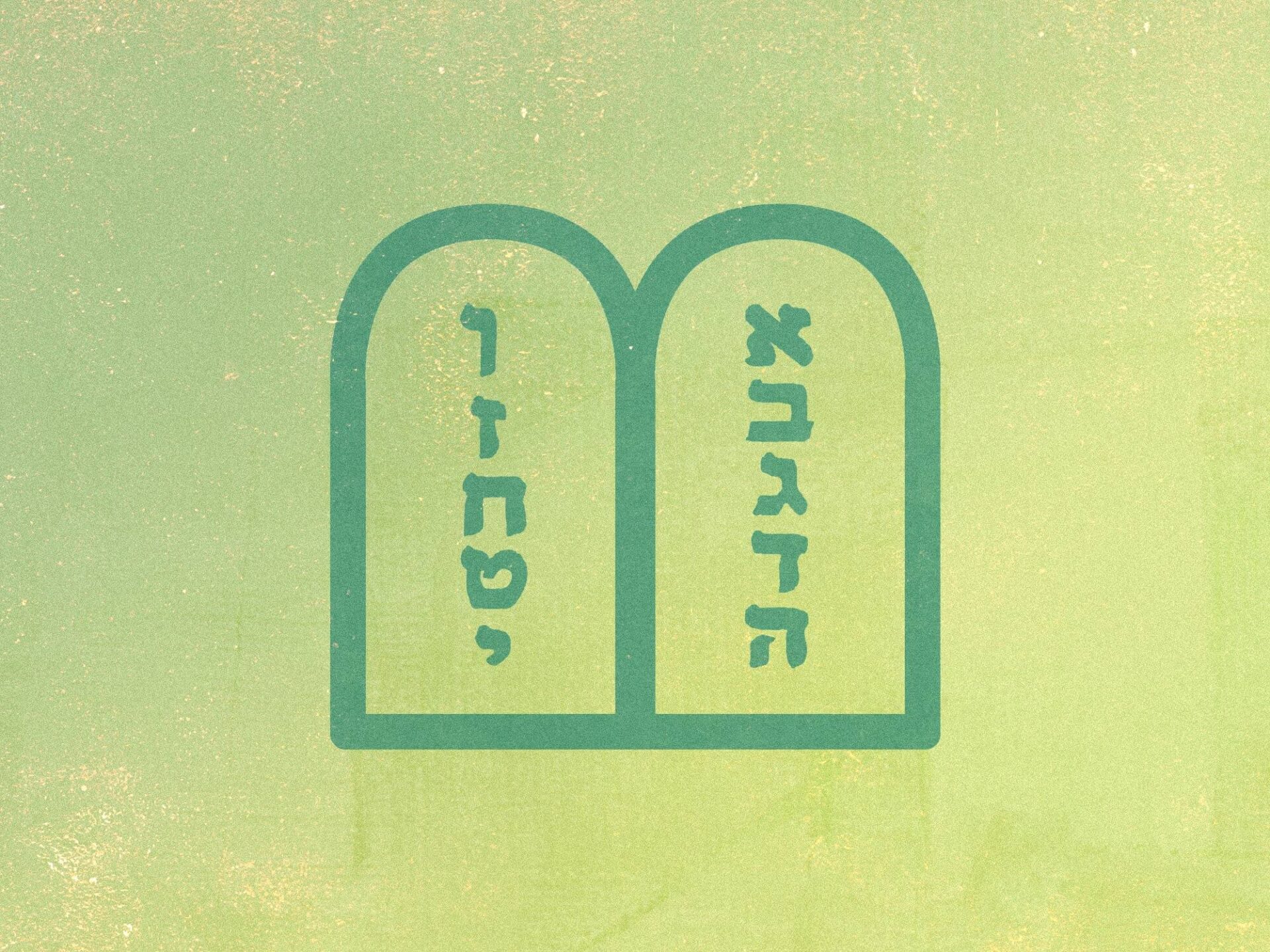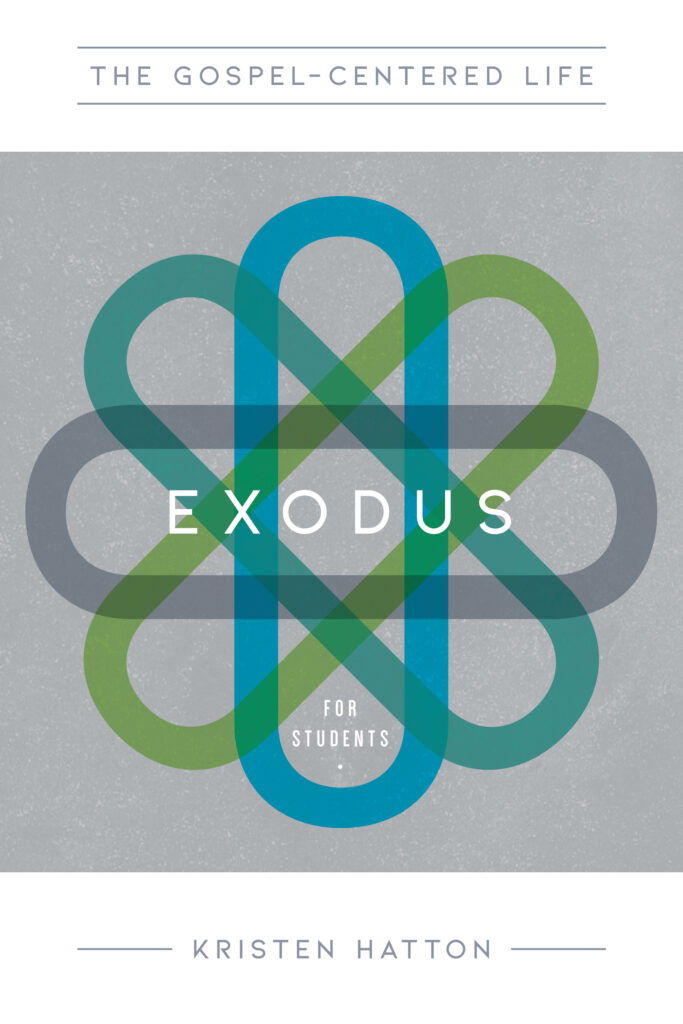Throughout Exodus we have seen God’s faithfulness to the Israelites. He heard their cries in Egypt, appeared to Moses with his plan to lead them out of captivity and delivered them across the Red Sea to freedom. But along the way they grumbled at Moses, grew impatient, lacked faith, and were frustrated over their lack of control. They were not an easy bunch, and yet God remained steadfast in his love toward them. To confirm his love and formalize their status as his chosen people, he is now preparing them to receive his law.
It may seem strange that giving his law is how he intends to seal his love for them. We think of laws as prohibitive and restricting, but God’s purposes are no different from your parents putting rules in place because they love you. God’s law is what will solidify and confirm to the people his covenant relationship with them.
As we’ve learned, God is the sole initiator and keeper of his covenants. When he covenanted with Abraham, it was he alone who walked in between the sacrificed animals to symbolically display his taking full responsibility for upholding both ends of the covenant. This is imperative to rightly understanding God’s declaration to the Israelites that they will be his treasured possession, kingdom priest and holy nation if they obey and keep his commands.
This statement sounds conditional on their obedience. Isn’t this how we too often think about our standing before God? If we do what he requires, we expect he should be pleased with us and make things go our way. We live as if we earn his blessings or curses by how we behave. So, we try to use being good as a way to manipulate God and control our lives—as if we were God. We live as if God operates under the mantra you get what you deserve.
This is why we need gospel glasses to understand that if you obey and keep my commands is not a conditional clause. God’s love is not based on us being worthy. Remember, by the time of the exodus God has already made his covenant. The Israelites are his chosen people. He did not set his love on them because of anything they did, nor did he remove his love because of anything they failed to do. Their obedience was not what kept their status as God’s people; their obedience was a sign they already had a status as God’s people.
God is saying their obedience to the Law is a reflection of their love. This is one reason he gives his Law—so we know how we can reflect back our special status as God’s most prized possessions. His Law is like a letter telling us what delights him. You could call it God’s love language.
Think of it as your mom telling you what she wants you to do for her on Mother’s Day. You want to do what she desires because of how much she does for you all year to show you love. The fact she told you what she wants is awesome because now you know just how you can please her. To reflect her love back to her shows her your love.
Of course, despite being God’s treasured possessions, we don’t always obey God’s laws and treasure him above all things. This is because of the sin that still lives within us. But thankfully, he doesn’t remove his love from us even though the penalty for disobedience is still death.
God does not judge us because, in his goodness to faithfully uphold his covenant, he sent his Son to suffer that penalty instead. Jesus became the sacrifice, the one torn in two, for our failure to keep God’s laws. So now, even in our sin, we stand secure in a right relationship with God. God accepts us as his children according to Jesus’s righteousness.
We are covered and cleaned by his blood shed for us. This is the very picture we are given when Moses sprinkled the people saying, “Behold the blood of the covenant that the Lord has made with you” (Exodus 24:8). They had promised to do all God commanded and meant it with all their hearts, but perfect obedience was not something they could ever attain. It was Jesus, centuries later, who finally kept that promise. He became the only Israelite to perfectly obey God. And at the Last Supper he lifted his cup and said, “This is my blood of the covenant” (Mark 14:24).
Today when communion is served, Jesus’s same words are used in remembrance of his blood shed for our covenant unfaithfulness. Despite our sin, we don’t have to fear God’s rejection. Jesus did everything God requires, and we belong to Jesus! It is not our good works that make us right with God, but Jesus’s perfect work. We get his righteousness; he took our sin.
This great exchange is what separates Christianity from every other religion. In no other religion could someone else merit righteousness in the place of another, but the true God operates on a completely different economy or system, and it’s called grace. Grace is the premise of God’s covenant that sets us apart as his holy nation—a nation delighted to serve our King!
It doesn’t make sense that we get what we so clearly don’t deserve. But when we begin to grasp the truth of all God has done for covenant breakers like us, that truth leads us to want to obey his law as an expression of our gratitude.
Excerpted from The Gospel-Centered Life in Exodus for Students © 2018 by Kristen Hatton. Used by permission of New Growth Press. May not be reproduced without prior written permission.
The Gospel-Centered Life in Exodus for Students
Just like the ancient Israelites, we all need a Redeemer. The Israelites grumbled, complained, disobeyed, worshipped false gods, and tried to be their own Savior, and through this study, teens and young adults will see that they too do those same things. But they will also see how God gives grace to the guilty and over and over again comes to the rescue, pointing to the deliverance of God’s people that is later fulfilled in Christ and the gospel.






